Arrigo Boito
Nacimiento : 1842-02-24, Padua,Italy
Muerte : 1918-06-10
Historia
From Wikipedia, the free encyclopedia - https://en.wikipedia.org/wiki/Arrigo_Boito.
Arrigo Boito (24 February 1842 – 10 June 1918) (whose original name was Enrico Giuseppe Giovanni Boito and who wrote essays under the anagrammatic pseudonym of Tobia Gorrio), was an Italian poet, journalist, novelist, librettist and composer, best known today for his libretti, especially those for Giuseppe Verdi's operas Otello and Falstaff, and his own opera Mefistofele. Along with Emilio Praga, and his own brother Camillo Boito he is regarded as one of the prominent representatives of the Scapigliatura artistic movement.

Writer

Writer
The ambiguities of Verdi’s theatre are particularly clear in his baritone roles, among which is that of Boccanegra, corsair turned doge of Genoa and the troubled observer of the conflicts that tore apart 14th century landowners and peasants. An eminently political opera in which power struggles are interwoven with family conflicts, Simon Boccanegra echoes the life of its composer – the man who championed the cause of Italian unification and overcame the loss of his wife and children. Calixto Bieito, that most Shakespearean of opera directors, brings humanism and truth to a work haunted by gleaming images of the sea.

Writer
Like an outcry the elemental force of the orchestra shatters the silence, the storm on the coast of Cyprus rages incessantly. The wind whips, lightening cuts through the roaring skies. As Othello, the great general and commander becomes entangled in Iago's web of machinations; as the calamitous seed of jealousy germinates and Othello's love for his wife Desdemona begins to decay, even on their wedding day; as Desdemona, "nevertheless insists, although she senses or feels that this harm comes her way, and that Othello in his jealousy is really capable of killing her" (Amélie Niermeyer) – with his Otello Verdi created an operatic drama, the likes of which had never before been so tight, so direct, so intensive and so beautiful, and still today unmatched.

Writer
A tragic tale in which love and filial sentiment battle in a political intrigue around the fascinating character of Simon, a privateer become doge: Simon Boccanegra is one of Verdi’s greatest operas, over which floats the shadow of his admiration for Shakespeare. For this captivating and moving score, the Dijon Bourgogne Orchestra has called upon one of the great Verdi specialists, Roberto Rizzi Brignoli, whose Traviata in 2011 demonstrated his intimate and precise knowledge of the Italian master’s style, and the German stage director Philipp Himmelmann, a regular at Unter den Linden in Berlin and the great European stages.
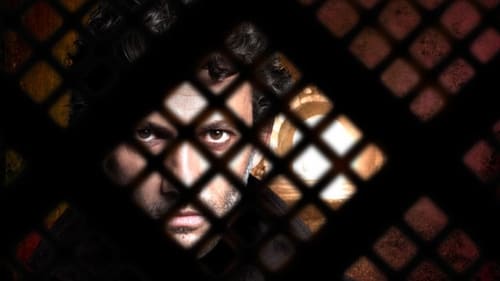
Writer
On a June night in 2017, opera lovers thronged to the Royal Opera House in London to hear tenor Jonas Kaufmann, recently acclaimed by The Daily Telegraph as the world s greatest tenor, make his eagerly anticipated debut in the title role of Otello Verdi s greatest and most demanding role for tenor voice. As the New York Times wrote Mr. Kaufmann made his debut in the part, and he calmly, confidently sang it for the ages.

Writer
The director, Roland Schwab, has created his version of Hell. The set is like a high iron walled hanger and the stage is continually occupied with people who look like fugitives from Mad Max and who interact with Mefistofele. The orchestra and choir are wonderful. Rene Pape gives a nuanced interpretation with a certain amount of sardonic humour under the evil. His singing and acting are first rate, as is that of Kristine Opolais and Joseph Calleja.
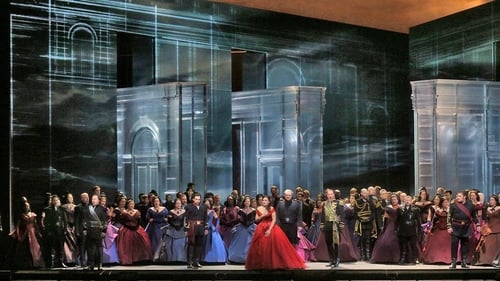
Writer
La audaz producción de Bartlett Sher, la ganadora del premio Tony, investiga los fundamentos psicológicos del escenario dinámico de Verdi de la gran tragedia de Shakespeare. A la cabeza de esta actuación está Yannick Nézet-Séguin, quien saca a la luz todas las emociones en cascada en la turbulenta puntuación de Verdi. Aleksandrs Antonenko es Otello, el general triunfante del ejército veneciano que finalmente es derribado por las insinuaciones astutas de su amigo Iago (Željko Lučić). Sonya Yoncheva continúa ganando fans como Desdemona, la esposa fiel y duradera de Otello.

Writer
Rarely has a production of Verdi’s Otello been staged in such a prestigious location: the courtyard of the Palazzo Ducale in Venice! This special outdoor “event production” of the Teatro La Fenice takes place amidst genuine late-Gothic and Renaissance architecture highlighted by spectacular projections: “A set of singular fascination” (Il Corriere Musicale). Critics were full of praise for the musical performance, designating conductor Myung-Whun Chung as the “absolutely dominating force” of the performance (GB Opera). The lead role is sung by Gregory Kunde, who successfully interpreted both Verdi’s and Rossini’s Otello in one year, perhaps the first tenor ever to do so. He “reproduces every accent, every colour demanded by Verdi with sensibility and intelligence” (OperaClick).

Writer
Music Director James Levine conducts his first new Met production after a two-year absence: Robert Carsen’s hit staging of Verdi’s great human comedy. Ambrogio Maestri is an ideal Falstaff, leading an extraordinary ensemble cast of veteran and up-and-coming Met stars, including Angela Meade (Alice), Stephanie Blythe (Mistress Quickly), Franco Vasallo (Ford), and Jennifer Johnson Cano (Meg). Lisette Oropesa and Paolo Fanale are the young lovers, Nannetta and Fenton.

Writer
The season kicks off with Boitos resplendent retelling of Goethes Faust, a monumental work of 'choral grandeur and melodic richness' (The New York Times) in one of the most impressive productions ever seen at the War Memorial Opera House. The cast includes Ramón Vargas, a tenor 'in ravishing voice' (Financial Times), as the philosopher who sells his soul to the Devil; the 'luminous, compelling' Patricia Racette (Washington Post) as the woman he desires; and, in the vividly menacing title role, the 'seductively malevolent' bass-baritone Ildar Abdrazakov, a 'fullbodied bass-baritone' renowned for his 'wonderfully evil portrayals' (The New York Times).
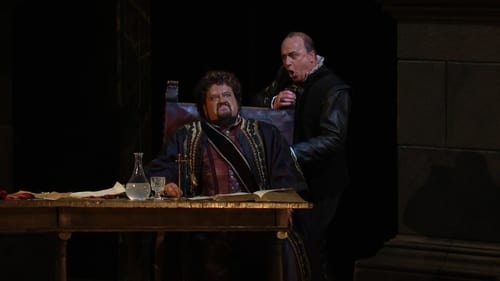
Writer
In Verdi’s retelling of Shakespeare’s towering tragedy, Renée Fleming gives a captivating performance as the innocent Desdemona, a role long considered one of her calling cards. Johan Botha as the title hero delivers an imposing portrayal of a proud warrior brought down by jealousy, and Falk Struckmann is thrilling as the villainous Iago. James Morris sings Lodovico. Elijah Moshinsky’s production is conducted by Semyon Bychkov.
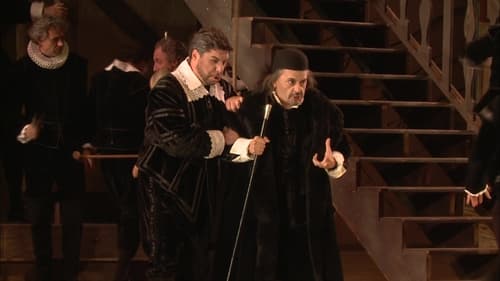
Writer
Part of Tutto Verdi series - Falstaff (2011) Parma. 'Falstaff' is an opera in three acts by the Italian composer Giuseppe Verdi (1813–1901). The libretto was adapted by Arrigo Boito from Shakespeare's 'The Merry Wives of Windsor' and scenes from 'Henry IV, parts 1 and 2'. The work premiered on 9 February 1893 at La Scala, Milan

Writer
Coming just before the mature final works, Verdi's Simon Boccanegra - along with Un Ballo in Maschera, Les Vêpres Siciliennes, La Forza del Destino and Don Carlos - occupy a strange but fascinating hinterland in the career of the composer. Each of the operas, influenced by Verdi's political involvement in the Risorgimento for the reunification of Italy during the period, are very much concerned with the exercise of power, but they all rely on typically operatic conventions of bel canto and French Grand Opéra in their use of personal tragedies and unlikely twists of fate to highlight the human feelings and weaknesses that lie behind their historical dramas. Written in 1859, but revised by the composer in 1881, Piave's libretto given an uncredited reworking by Arrigo Boito, Simon Boccanegra is consequently one of the more interesting works from this period, certainly from a musical standpoint. Live from Teatro all Scala, Milan 2010.

Writer
Part of Tutto Verdi series - Simon Boccanegra (2010) Parma. Revised version (1881). 'Simon Boccanegra' is an opera with a prologue and three acts by Giuseppe Verdi to an Italian libretto by Francesco Maria Piave, based on the play 'Simón Bocanegra' (1843) by Antonio García Gutiérrez, whose play 'El trovador' had been the basis for Verdi's 1853 opera, 'Il trovatore'. Simon Boccanegra was first performed at Teatro La Fenice in Venice on 12 March 1857

Writer
Live from Glyndebourne 2009

Writer
Part of Tutto Verdi series - Otello (2008) Salzburg. 'Otello' is an opera in four acts by Giuseppe Verdi to an Italian libretto by Arrigo Boito, based on Shakespeare's play 'Othello'. It was Verdi's penultimate opera, and was first performed at the Teatro alla Scala, Milan, on 5 February 1887.

Writer
Live from the Arena di Verona 2005

Writer
This was Domingo's last set of performances as Otello in La Scala. In spite of his relatively advanced age, he is still in excellent form, both vocally and in terms of stage presence. Nucci is also his usual self, delivering a performance of very high standard. Barbara Frittoli is an excellent Desdemona, in good voice and gives a very moving performance. Muti conducts with great emotion and tight accuracy, conveying the full orchestral drama of the score.

Writer
One of the chief pleasures of this live production of Otello from the Berlin Staatsoper Unter den Linden is Daniel Barenboim's conducting. From the opening gale-force blast of storm music, through the crunching and stabbing accompaniment of Iago's "Credo" to the shimmering strings of Desdemona's "Willow Song", he doesn't miss a trick. Everything works at the highest pitch of intensity and the orchestra sticks to his beat like glue. It's a necessary compensation for the shortcomings of the staging: the stolid chorus remains unperturbed by the storm and is directed to perform with unison movements; the acting (apart from Valeri Alexejev) is non-committal, and Alexandre Tarta's video direction somewhat flat-footed. She doesn't manage to make much small-screen sense of an impenetrably murky opening scene, for example, and doesn't seem fond of reaction shots.

Writer
Verdi’s monumental score is fully the equal of Shakespeare’s famous tragedy—and both demand great actors. This is one performance where both playwright and composer are well served. Plácido Domingo’s Otello is one of the glories of the operatic world, beautifully sung and so commandingly acted that audiences are devastated by the end. Renée Fleming’s ravishingly beautiful Desdemona is deeply moving, and as Iago, James Morris is as beguiling as he is menacing. Under James Levine’s conducting the Met orchestra and chorus are vital characters in the drama.
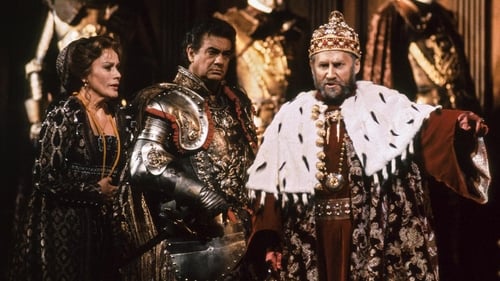
Writer
This evocative production by Giancarlo Del Monaco sumptuously captures the look and feel of 14th century Genoa and is a perfect compliment to Verdi’s setting of this story of searing conflict between public duty and private grief. Plácido Domingo is Gabriele Adorno, sworn enemy of the doge of Genoa, Simon Boccanegra (Vladimir Chernov). Gabriele is in love with the beautiful Amelia (Kiri Te Kanawa at her most affecting) who turns out to be none other than the long-lost daughter the doge. James Levine’s authoritative conducting of the Met orchestra and chorus reveals the dark power of Verdi’s score. Performed January 26th, 1995.

Writer
It is to composer and librettist Arrigo Boito and his constant pestering of the octogenarian Verdi that there remained within him one last great comedy fighting to get out that we owe this absolute miracle of an opera. Produced in 1893 as Verdi turned 80 there is much in this masterpiece that can be identified as a modernist neoclassical work. The use of short motifs instead of long arioso melodic lines, the spry and reduced orchestral textures and the lack of a single 'stand and deliver' dramatic declamatory aria all serve to make this more of a 20th century work than an example of 19th century late-Romanticism.

Writer
The complete version of Verdi's Otello performed by Placido Domingo and Kiri Te Kanawa, at the Royal Opera House, Covent Garden. Gala Performance in honour of Sir Georg Solti's 80th birthday.. 27 October 1992. BBC 2 Television live relay.

Writer
Boito's retelling of Goethe's Faust

Writer
'Otello' by Giuseppe Verdi , Welsh National Opera, 1987, directed by Peter Stein

Music
Arrigo Boito's Il Mefestefele was first performed in 1868 and his most known work. In Ken Russell's modern interpretation presented by the Genoese Opera, it has Faust as an ageing hippy. He smokes marijuana and is tormented by his lost youth. Mephisto makes a bet with God that he can turn anyone to pagan life, even someone as innocent as Faust. From then on it is a battle of good against evil in a flamboyant, surreal display of primary colours, PVC costumes, nurses with swastikas, rocket trips, love and even characters dressed as Donald Duck and Mickey Mouse. Ken Russell said because the devil is always with us is his reason for the contemporary setting.

Writer
Arrigo Boito's Il Mefestefele was first performed in 1868 and his most known work. In Ken Russell's modern interpretation presented by the Genoese Opera, it has Faust as an ageing hippy. He smokes marijuana and is tormented by his lost youth. Mephisto makes a bet with God that he can turn anyone to pagan life, even someone as innocent as Faust. From then on it is a battle of good against evil in a flamboyant, surreal display of primary colours, PVC costumes, nurses with swastikas, rocket trips, love and even characters dressed as Donald Duck and Mickey Mouse. Ken Russell said because the devil is always with us is his reason for the contemporary setting.

Writer
Recorded live at the Vienna State Opera, Placido Domingo and Eva Marton star in a sumptuous recording of Ponchielli's famed four-act melodrama, a story of tyranny and intrigue set in semi-historical and ever-romantic Venice. The action is projected by strong characters whose fundamentally sound instincts become distorted by raw passion. The performance draws upon both human and technical resources including a large ballet and varies in mood from the happy carnival to scenes of the darkest gloom and horror.
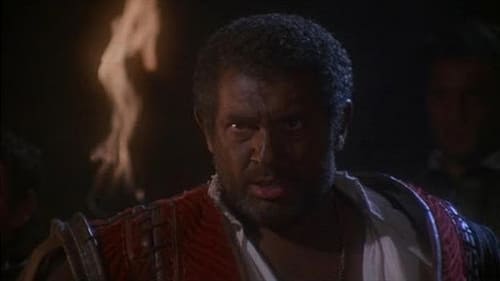
Writer
Based on Shakespeare's play, Verdi's opera depicts the devastating effects of jealousy, "...the green-eyed monster which doth mock the meat it feeds upon". Believing Otello has promoted the fast-rising Cassio over himself, Iago plots to destroy both Cassio and Otello. Iago convinces the jealous Otello that his beautiful wife Desdemona is unfaithful, and that Cassio is her lover. Jealousy is followed by tragedy, then retribution, "Has Heaven no more thunderbolts?"

Writer
The ambiguities of Verdi’s theatre are particularly clear in his baritone roles, among which is that of Boccanegra, corsair turned doge of Genoa and the troubled observer of the conflicts that tore apart 14th century landowners and peasants. An eminently political opera in which power struggles are interwoven with family conflicts, Simon Boccanegra echoes the life of its composer – the man who championed the cause of Italian unification and overcame the loss of his wife and children.

Writer
Verdi's 'Otello', based on Shakespeare's famous tragedy, is performed at the famous Arena of Verona, with Kiri Te Kanawa and Vladimir Atlantov heading an international cast.

Writer
This performance, and the film that documents it, is superb! From its comically vulgar opening in the Garter Inn, where we are introduced to a rotund (and slightly pathetic) Falstaff - in a richly nuanced performance by baritone Gabriel Bacquier cocooned in prosthetic girth (his face is too thin for the enormity to be real) - to the supremely beautiful nocturnal magic of the Finale in Windsor Park, Solti is lovingly accompanied by the sublime Vienna Philharmonic. They play with such delicacy and elan what is an undeniably delicate score, that I lost myself in the instrumentation, forgot it was Verdi, thought it was Mozart, and couldn't remember which Mozartean Opera this was. The woodwinds and strings are singled out for special praise: perfect intonation and phrasing doesn't begin to do them justice. They breathe life into this score, propel it forward, act as a Chorus commenting on the action.

Writer
Abbado wholly vindicates Verdi’s intentions through his feeling for the shape of a whole scene, for the inherent subtleties of Verdi’s scoring and for certain rhythmic effects.

Writer
Herbert von Karajan directed this film of Verdi’s Shakespearan masterpiece as well as conducting the Berlin Philharmonic. As the tragic Moor of Venice, arguably his greatest role, John Vickers (in the words of critic David Cairns) "commands both the notes and the moral grandeur of the part. … And he has the aura of greatness – greatness of heart, of bearing, of musical and dramatic conception". Mirella Freni is a heartbreakingly lovely and fragile Desdemona, while the fine English baritone Peter Glossop plays the villainous Jago.

Writer
Desdemona in Verdi's Otello was a career role for soprano Renata Tebaldi, from her first operatic performance outside of Italy to her final appearance on the opera stage. Between those landmarks she performed the role nearly 100 times all over the world and made studio audio recordings that became reference recordings for the role. This 1962 production with the Deutsche Oper Berlin and Giuseppe Patane was planned as a media event from the outset and blessedly captures a consummate artist in a signature role at the peak of her gifts.

Writer
This 1958 filmed version of Verdi's masterful Otello stars Mario Del Monaco, perhaps the greatest Otello of the 21st century, as the tragic moor who is consumed by jealousy thanks to the machinations of the villainous Jago.

Other
Hymn of the Nations, originally titled Arturo Toscanini: Hymn of the Nations, is a 1944 film directed by Alexander Hammid, which features the "Inno delle nazioni," a patriotic work for tenor soloist, chorus, and orchestra, composed by Italian opera composer Giuseppe Verdi in the early 1860s. (For this musical work, Verdi utilized the national anthems of several European nations.) In December 1943, Arturo Toscanini filmed a performance of this music for inclusion in an Office of War Information documentary about the role of Italian-Americans in aiding the Allies during World War II. Toscanini added a bridge passage to include arrangements of "The Star-Spangled Banner" for the United States and "The Internationale" for the Soviet Union and the Italian partisans. Joining Toscanini in the filmed performance in NBC Studio 8-H, were tenor Jan Peerce, the Westminster Choir, and the NBC Symphony Orchestra. The film also included the overture to Verdi's opera La Forza del Destino.

Writer
Short costume picture on the infamous Roman Emperor.

















